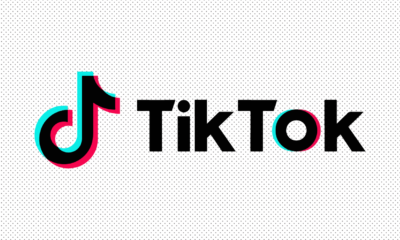General
5 Ways How Recruitment And Talent Acquisition Are Different


The phrases “recruitment” and “talent acquisition” are considered to be synonymous and are assumed to refer to the same concept – a terminology used to define the many processes involved in sourcing and recruiting people. However, recruitment and talent acquisition are not synonymous. Both of their primary goals are similar, although they are different in nature and approach. Understanding the distinctions among them and tailoring your recruiting process to match will help you hire top talent more efficiently.
Let’s start with a definition of the two concepts.
Recruitment Vs Talent Acquisition
As previously stated, the essence and approach of recruitment and talent acquisition are different.
Recruitment
A linear approach entails looking for a particular candidate for a specific job. It’s the process of filling up a vacant position in the organization. The primary goal of recruitment is to find the best candidates with the right skillsets for existing open positions.
Talent Acquisition
Talent acquisition is a cyclical method to cultivating relationships, predicting future recruiting needs, and building a sustainable pool of applicants, rather than a linear procedure. It’s a more comprehensive strategy that focuses on building and nurturing a talent pipeline over time.
How Recruitment and Talent Acquisition Differ From Each Other?
Now that we’ve defined the terminology, let’s look at what distinguishes talent acquisition from recruitment.
Goals
While both recruitment and talent acquisition has the same goal of employing people, their objectives are distinct. When you need to fill urgent gaps in your firm to ensure smooth operations, you need to recruit. Because your main goal is to close the gaps as quickly as possible, your skillset is less important. However, in the talent acquisition process, your focus is more likely to be on employing highly competent employees with a long-term strategy. The purpose of the talent acquisition team is to find the ideal people for a specific function while keeping long-term workforce planning in mind.
Time period
One of the major factors that distinguish recruitment from talent acquisition is time. In a timing constraint, recruitment is used to fill imminent positions. Recruiters use recruitment to fill those positions in a brief span of time when there is a sudden surge in business needs or the need to replace old employee(s). Recruiters are continuously looking for the ideal candidates for talent and experience-based roles, such as executives, specialists, and managers, in addition to other positions. Because filling those posts involves months of planning and strategy, the talent acquisition process is seen as race preparation.
Intermittent Vs Continuous
Recruitment is all about ensuring that the company’s significant talent needs are satisfied in order for it to run smoothly at all times. Recruitment is both linear and contextual, from sourcing to the successful onboarding of individuals. It may occur once or many times per year, depending on the number of openings developed in the organization as a result of unexpected employee departures or department upsizing. When you look at things from a different perspective, you’ll see that your company needs specific talent to develop and lead in an extremely competitive niche. New trends affect the market and consumer behavior, and businesses must adapt their products and services accordingly.
Qualified candidates must be recruited within the firm to lead and drive change, and talent acquisition teams are responsible for keeping a check on these trends and developing a strategy to fill demanding roles such as CFO or product manager.
Roles
While both methods aim to fill positions, roles play a part in determining which strategy is best. Strategic, management, and leadership positions in the same IT firm are difficult to fill and take some time. For these difficult tasks, talent acquisition gives a defined plan of action for finding productive and skilled employees.
When To Recruit Or Acquire Talent?
In recruitment, you identify the qualifications and objectives that a candidate must meet and pursue them. If a company has created a new position or an employee is about to finish their notice period, the recruiters will begin examining the job’s functions and responsibilities. Once a clear image has been established, HR teams will start their search and use various channels to discover suitable applicants. Similarly, when a corporation takes on a large project, the talent requirements are met by mass recruiting to satisfy immediate workforce demands.
The specialized Talent acquisition team, on the other hand, employs an approach that is guided by a long-term vision. The talent acquisition professionals foresee future talent requirements and positions. Thus, talent acquisition is used when you need to find people to match them with the company’s top positions or responsibilities that don’t have to exist right now but may do in the future.
The Bottom Line
Both recruitment and talent acquisition are crucial to a company’s success. However, recruitment is increasingly difficult due to the rising unemployment rate and skill incompatibility in the talent pool. In today’s environment, positions are becoming more fluid, and firms are hiring for mindset and strengths rather than abilities since people will eventually evolve into the roles that organizations desire. Talent acquisition may support a company’s expected long-term career plans with skill gap analysis, proper planning, and employer branding. An applicant tracking system (ATS) can help talent acquisition teams maintain track of these candidates over time and develop a robust plan that incorporates analytics.
Author Bio:
Aman Rawat has 3+ years of experience in the HR tech space. He is an inspired SaaS marketer and working as a marketing specialist at Zimyo, an HR Software company. In my free time, I usually go through the trends in the market or play badminton with friends.



 General2 months ago
General2 months agoWhat Is Smart Construction? A Beginner’s Guide





 Technology1 month ago
Technology1 month ago7 Essential TikTok Metrics to Track for Higher TikTok Views in 2025



 Technology1 month ago
Technology1 month agoHow to Send WooCommerce SMS Notifications for Orders

 Model3 weeks ago
Model3 weeks agoTiffany Stratton: Biography, Wiki, Age, WWE Career, Net Worth, Before Fame, Boyfriend



 Technology4 weeks ago
Technology4 weeks agoTop 5 Tips for Using File Uploads in Your WooCommerce Store Efficiently

 Technology3 weeks ago
Technology3 weeks agoWhy Airlines Are Using Virtual Reality Services for Pilot Training



 General4 weeks ago
General4 weeks agoThe Hidden Costs of a DUI & How a Lawyer Can Help You Avoid Them





 Technology3 weeks ago
Technology3 weeks agoExploring TikTok AI: My Experience Making a Video With Only Artificial Intelligence




You must be logged in to post a comment Login